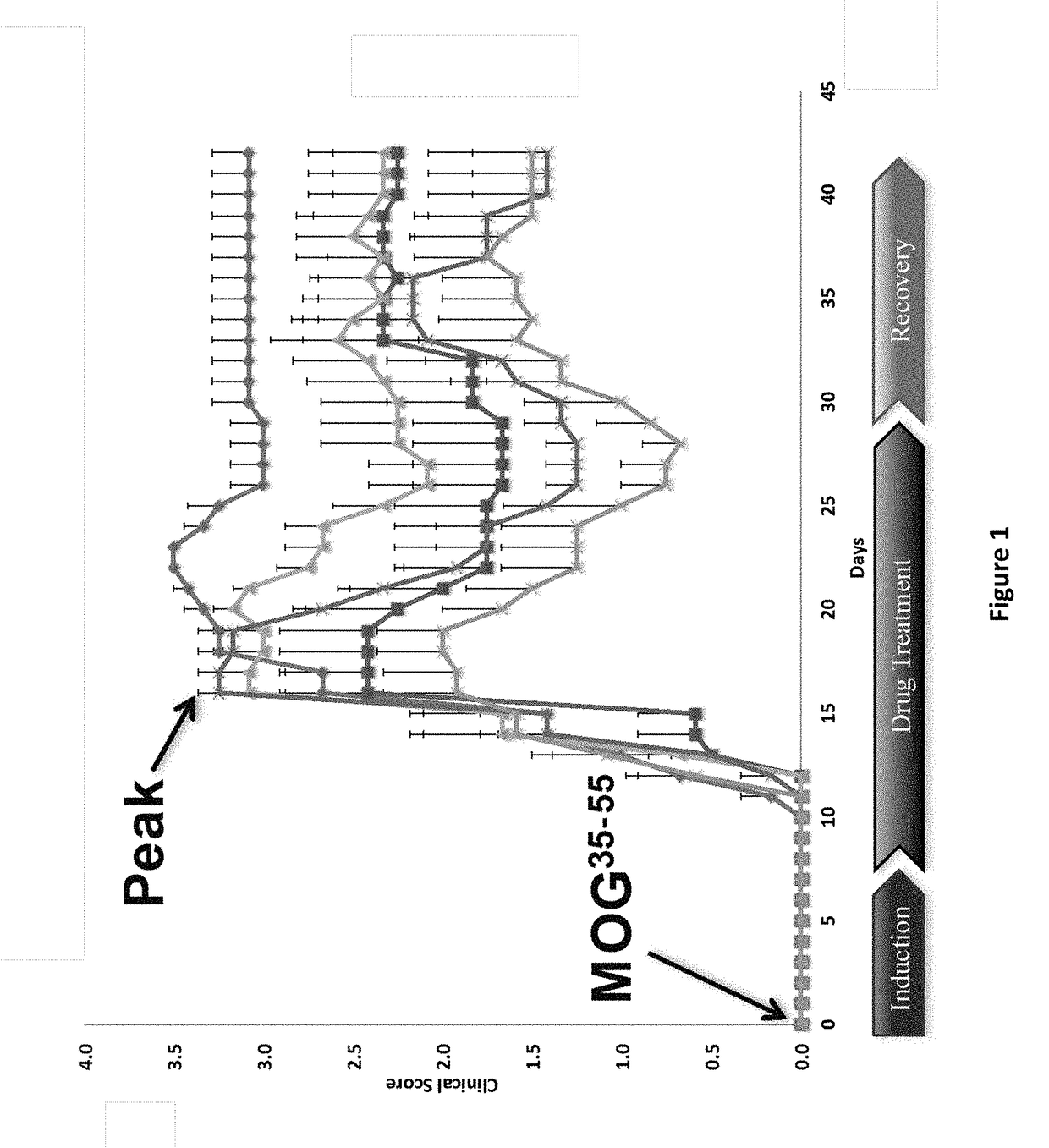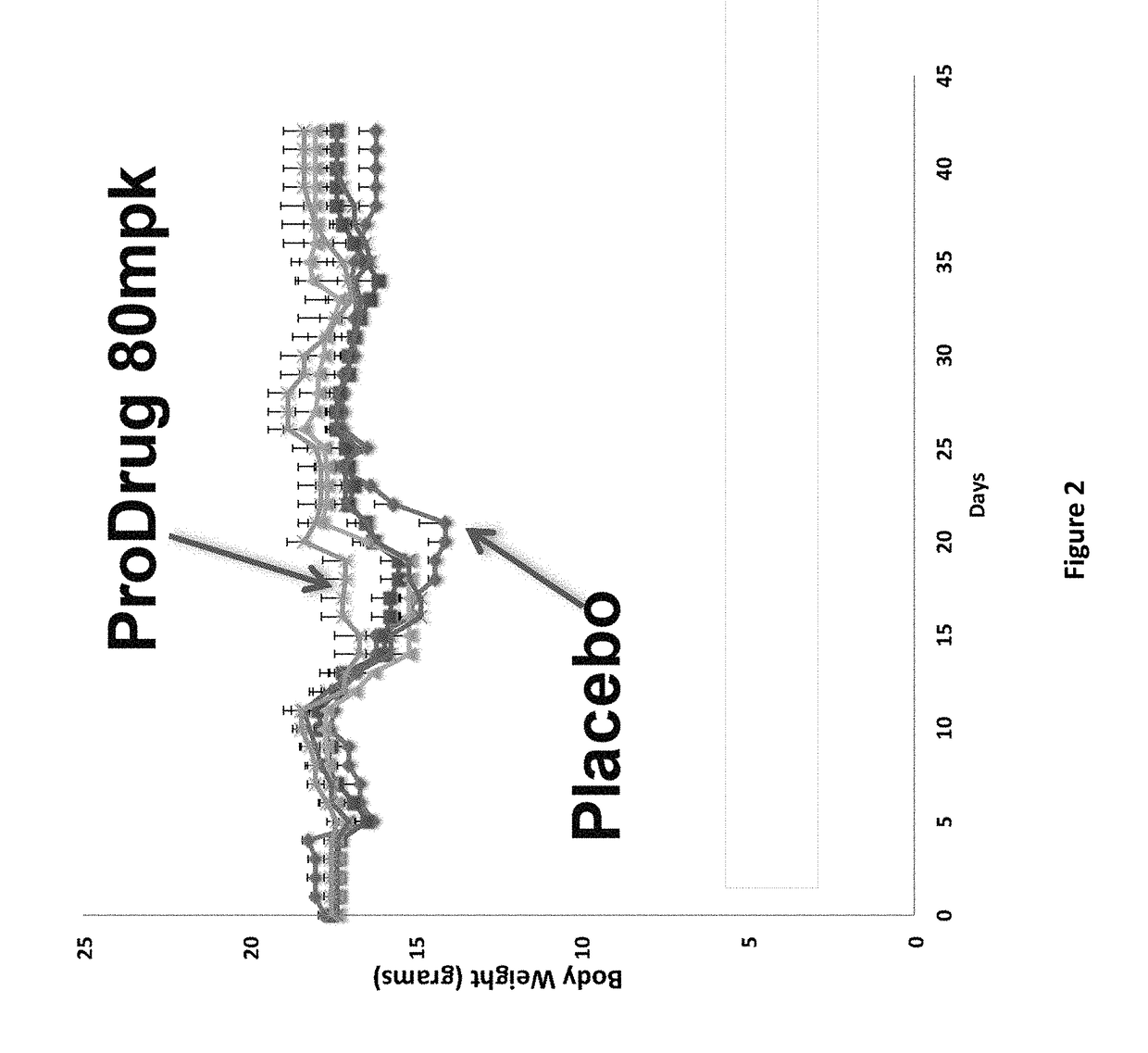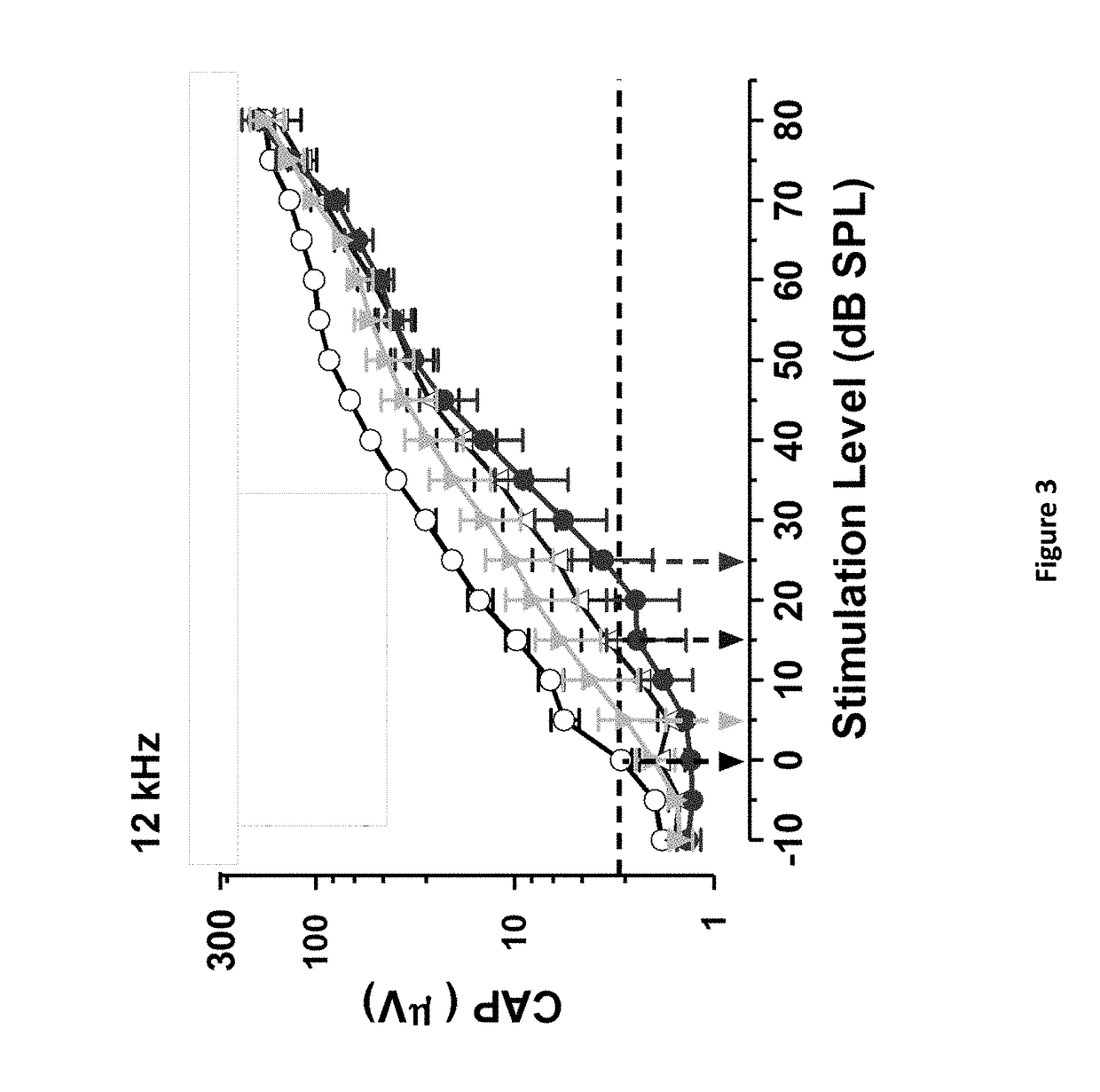DNP and DNP Prodrug Treatment of Neuromuscular, Neurodegenerative, Autoimmune, Developmental, Traumatic Brain Injury, Concussion, Dry Eye Disease, Hearing Loss and/or Metabolic Diseases
a prodrug and neurodegenerative technology, applied in the field of disease modification, can solve the problems of osmotic swelling of mitochondria, muscle wasting, and drug failure to significantly alter the lifespan of patients, and achieve the effect of increasing blood pressure and high blood sugar level
- Summary
- Abstract
- Description
- Claims
- Application Information
AI Technical Summary
Benefits of technology
Problems solved by technology
Method used
Image
Examples
example 1
Chemical and Enzymatic Stability Study of II-38
[0144]To determine the stability of II-38 prodrug over the time course of 24 h in chemical buffers adjusted to pH 1.2 and 7.4 and simulated gastric fluid and simulated intestinal fluid as well as in rat and human plasma. Prodrugs encounter a wide range of pHs when administered orally to patients. Oral dosing exposes compounds to pH 1 to 2 in the stomach, pH 4.5 at the beginning of the small intestine, pH 6.6 as an average pH for the small intestine, and pH 5 to 9 in the colon. These are useful pHs for in vitro evaluation of the chemical stability of a prodrug candidate as II-38. The following experiments were performed in aqueous solutions to determine stability of the II-38 prodrug in the GI tract and susceptibility to enzymatic hydrolysis to the parent drug (2,4-DNP) in plasma:
pH: Stability in aqueous buffers (37° C., pHs 1.2 and 7.4)
GI: Stability in simulated gastric fluid (USP, 37° C.)
GI: Stability in simulated intestinal fluid (USP...
example 2
inetic Analysis of 2,4-DNP and II-38
[0162]The oral bioavailability and plasma pharmacokinetic (PK) properties of II-38 prodrug and 2,4-DNP-released from II-38 prodrug was investigated in Sprague-Dawley (S-D) male rats after a single i.v. injection of II-38 at 1.6 mg / kg (eq. to 1 mg / kg 2,4-DNP) and an oral dose eq. to 5, 25 and 50 mg / kg of 2,4-DNP. Blood samples were taken up to 24 hour.
[0163]Animals
[0164]All procedures that involved the use of rats were conducted in accordance with the guidelines set forth by the University of Arkansas for Medical Sciences (UAMS) Institutional Animal Care and Use Committee established by the National Institutes of Health's Guide for the Care and Use of Laboratory Animals (1996). Male Sprague-Dawley rats weighing 250-300 grams were housed three per cage with ad libitum access to food and water in the Division of Laboratory Animal Resources, UAMS. Rats were anesthetized with isofluorane (2-5%) / oxygen (1.5-2.0 L / min) and surgically implanted with cannu...
example 3
e of 2,4-DNP-Released from DNP-Piperidino
[0197]
TABLE 11PK profile of 2,4-DNP-released from DNP-piperidino aftertreatment with a single oral dose of DNP-piperidino equivalent to5 mg / kg of 2,4-DNP formulated in DMSO:PEG-400:PBS (5:20:75)PARAMETER (UNITS)Oral-1Oral-2AUC (min*ug / mL)22364.516184t1 / 2 (min)656.1773.4Cmax (ug / mL)19.212.4tmax (min)240240
PUM
| Property | Measurement | Unit |
|---|---|---|
| weight loss | aaaaa | aaaaa |
| pH | aaaaa | aaaaa |
| pH | aaaaa | aaaaa |
Abstract
Description
Claims
Application Information
 Login to View More
Login to View More - R&D
- Intellectual Property
- Life Sciences
- Materials
- Tech Scout
- Unparalleled Data Quality
- Higher Quality Content
- 60% Fewer Hallucinations
Browse by: Latest US Patents, China's latest patents, Technical Efficacy Thesaurus, Application Domain, Technology Topic, Popular Technical Reports.
© 2025 PatSnap. All rights reserved.Legal|Privacy policy|Modern Slavery Act Transparency Statement|Sitemap|About US| Contact US: help@patsnap.com



